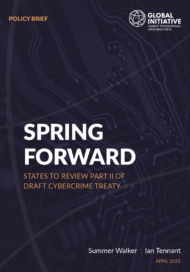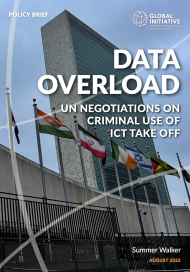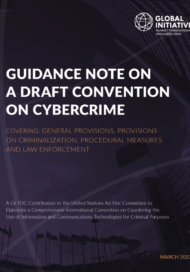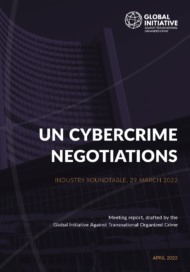Posted on 11 Apr 2023
In April 2023, the UN ad hoc committee to elaborate a convention on the ‘criminal misuse of information and communications technology’ will meet for its fifth session to discuss the second half of its consolidated negotiation draft. This will result in a zero draft convention, to be presented to states and stakeholders in August 2023 as the march towards a new convention continues.
In January, the ad hoc committee (AHC) concluded its review of the first half of the consolidated negotiation draft, which was produced by the AHC Chair. The draft was considered and red-lined in detail throughout the session, a typical process for governments to modify resolutions and draft treaties. However, as governments hammered out details line by line, the review process revealed a continued lack of understanding around some of the basics of the treaty.
The GI-TOC was left with a sense of concern over how wide the potential scope of the treaty was becoming, which means it could be used as a tool for repression as much as a tool for combatting cybercrime in the future. A related concern was the pushback against the inclusion of legal safeguards, not just from the usual cast of governments, but also from crucial blocks such as the Caribbean Community. We feel it is too early in the negotiating process to lose ground on legal safeguards, especially as there seem to be no limits to the scope of cooperation, at least at this stage. As we have noted in the past, an international criminal justice instrument requires legal safeguards, and it is of heightened importance given this is the first global cyber-focused treaty.
In this brief we analyze the second half of the negotiating draft, focusing on the four chapters that will be considered at the fifth session in April: the preamble, international cooperation, technical assistance and implementation mechanisms. The draft also includes chapters on prevention and final provisions, which we do not explore in this brief.




